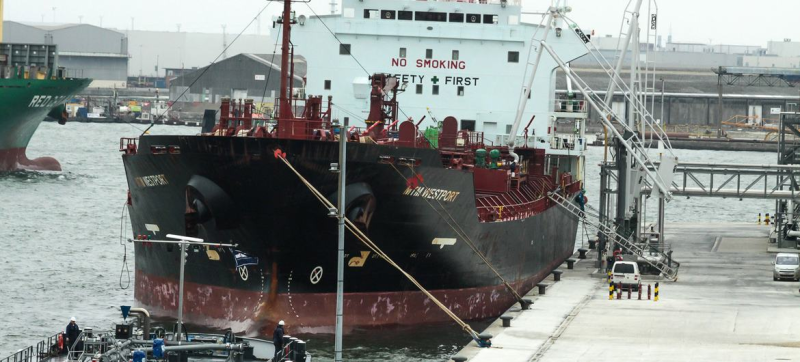- Record-breaking CO₂ surge in 2024 threatens global warming: UN |
- Dhaka stocks tumble as DSEX plunges 80 points |
- July Charter signing to be an occasion of national celebrations: Yunus |
- Passenger bus in northern India catches fire: 20 people burn to death |
- Voting start in Ctg Varsity Central Students Union elections |
Nations Divided Over Global Shipping Emission Cuts

A cargo ship docked at a port in Europe.
The UN maritime agency opened a special session in London on Tuesday, where nations are debating — and may adopt — a landmark framework to curb greenhouse gas emissions from global shipping, amid intense discussion and open US opposition.
The framework, developed after years of negotiations and approved in draft form in April, would, for the first time, establish a mandatory global fuel standard and a greenhouse gas pricing mechanism for ships.
Together, these measures aim to steer the world’s maritime fleet — which carries about 80 per cent of global trade and produces nearly three per cent of global emissions — toward net-zero emissions by 2050.
Arsenio Dominguez, Secretary-General of the International Maritime Organization (IMO), highlighted the “special importance” of the week-long session for the agency and its mission.
He acknowledged that while some countries view the plan as too ambitious, others believe it does not go far enough.
“The IMO Net-Zero Framework is not perfect,” he told delegates. “However, it provides a balanced basis for our further work ahead of its entry into force in 2027.”
He added that the process had been “inclusive and thorough,” urging delegates to approach the talks “with diplomacy and respect.”
“Here, we are diplomatic and respectful to one another; we listen to everyone’s opinion, we take steps forward, and we are always looking to improve in this ever-changing sector,” he said.
The session of the IMO’s Marine Environment Protection Committee runs through Friday, when delegates are expected to vote on adopting the framework as an amendment to the main international treaty on reducing air pollution from shipping and improving energy efficiency.
If adopted, the new rules would apply to all ocean-going vessels over 5,000 gross tons, which together account for around 85 per cent of shipping-related emissions. National governments would be responsible for enforcement.
Ships would be required to gradually reduce their reliance on carbon-emitting fuels and pay a fee for excess emissions, with revenue expected to be reinvested in clean energy transition projects and support for developing countries.
If a ship emits below a certain threshold, it can bank or trade surplus emission units. Similarly, vessels that fully switch to zero or near-zero emission fuels would qualify for financial incentives.
The proposal, however, faces strong opposition from the United States.
In a joint statement last week, the US Secretaries of State, Energy, and Transportation said the framework amounted to “a global carbon tax on the world,” warning that it could raise shipping costs by more than 10 per cent and hurt American consumers.
The statement also warned that Washington could consider imposing visa restrictions, commercial penalties, and new port fees on countries supporting the framework.

